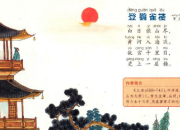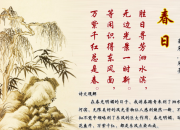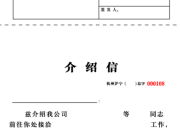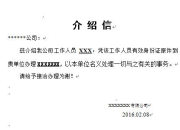谁是世界上最幸福的人双语散文
时间:2021-08-31只有傻瓜才不考虑别人的利益。
抛弃自己国家的传统来创造更好的社会是一种错误的方式。
一个民族失去了自己的神话,就失去了自我。
[1]They live on a windswept island surrounded by glaciers 『冰川;冰河』and volcanoes『火山』. What makes them so content『满足的;甘心的』?
[1]他们生活在海风吹拂的小岛上,被冰川和火山所环绕着。是什么使他们如此满足?
[2]In a poll『民意调查』of 18 nations, The Gallup Organization discovered that Icelanders are the happiest people alive. All 267,809 of them. Eighty-two percent are satisfied with their personal lives. The United States ranked『位居;名列』fifth at 72 percent; Japan came in seventh with 42 percent.
[2]美国的盖洛普民意测验组织对世界上18个国家的民意测验表明:冰岛人是世界上最快乐的人。参加测试的人数为26.78万人。82%的冰岛人表示满意自己的生活;美国表示满意自己生活的人数为72%,排列第五位;日本排列第七位,人数比率为42%。
[3]Some people would say that happy Iceland is a statistical fluke『侥幸』. This is a country so small, an ordinary citizen can make an appointment to see the president.
[3]有人会说:快乐的冰岛仅仅是统计上的巧合。这个国家如此之小,普通的公民也能受到总统的接见。
[4]True, Iceland is no utopia. Icelanders are big boozers 『酒徒』, with a fishing tradition of binge『狂欢作乐』drinking. Almost a third of the births are out of wedlock『私生的』. But that’s what makes the Gallup study so interesting. Icelanders have problems like the rest of us, yet they are happy with their lot『命运;运气』. So what gives?
[4]确实,冰岛并非天堂,冰岛有传统的打鱼豪饮的习惯,酒鬼很多,近三分之一的孩子没有父亲。然而,正因为如此,盖洛普的这项研究才显得更加有趣。因为,像我们一样,冰岛人有许多问题,但是,他们却安命乐天。这究竟是为什么呢?











